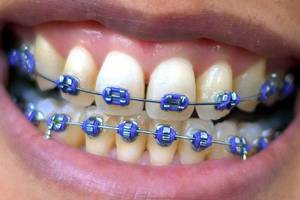There are many different kinds of braces available, and they all have their pros and cons, do some things better than others, but may be lacking in other key areas. What the best brace is depends on what we are getting them for and how we intend to use them.

In this article, we hope to shed some light on when to get lingual braces, what kind of orthodontic problems they are good at fixing, when not to get them, and what the pros and cons of this kind of rarely talked about orthodontic system is. Lingual braces are just like normal, regular braces, but they are placed on the back side of the teeth, the side that faces the tongue. The brackets are usually made of more malleable materials, like gold and titanium alloy.
Are lingual braces good for all kinds of orthodontic treatment?
Currently it seems that all orthodontic problems and malocclusions can be fixed with lingual braces, and there are no disqualifying factors or problems, but some orthodontic problems may take a lot longer to fix with lingual braces then with buccal ones (these are the traditional ones that go on the front of the teeth). Deep vertical bites do have concerns though, as this kind of orthodontic malocclusion may cause you to actually harm the braces while biting down.
Lingual braces: pros
The pros of lingual braces are that they are truly, really invisible. You can smile, laugh, eat, and do anything with comfort, as they are only visible form a certain angle. This makes them ideal for adult orthodontics. They are also super effective and the alloy tends to demineralise the teeth less than the standard orthodontic alloy used in traditional metal braces.
Lingual braces: cons
The first criticism that many patients report is that treatment typically takes longer with lingual braces, up to 20-30% longer in some cases. This is not a given, but is a very frequent outcome. The lingual braces are also harder to clean than the buccal ones. And the third criticism is that it is a lot more expensive than the buccal ones, not only because fewer places carry lingual braces, but also because the brackets are more expensive because they are made of a special alloy, and because highly specialised knowledge is necessary to be able to place, adjust and work with lingual braces.
If you want to find out if lingual braces are right for you, the best thing to do is to book a consultation session with an expert orthodontist. Why not call one of ours today, and have in depth conversation about what the best orthodontic system is for your problems?
What kind of braces do you need?
Special dental offer for those who decide to travel!
The offer is valid until 31st of December, 2019.





